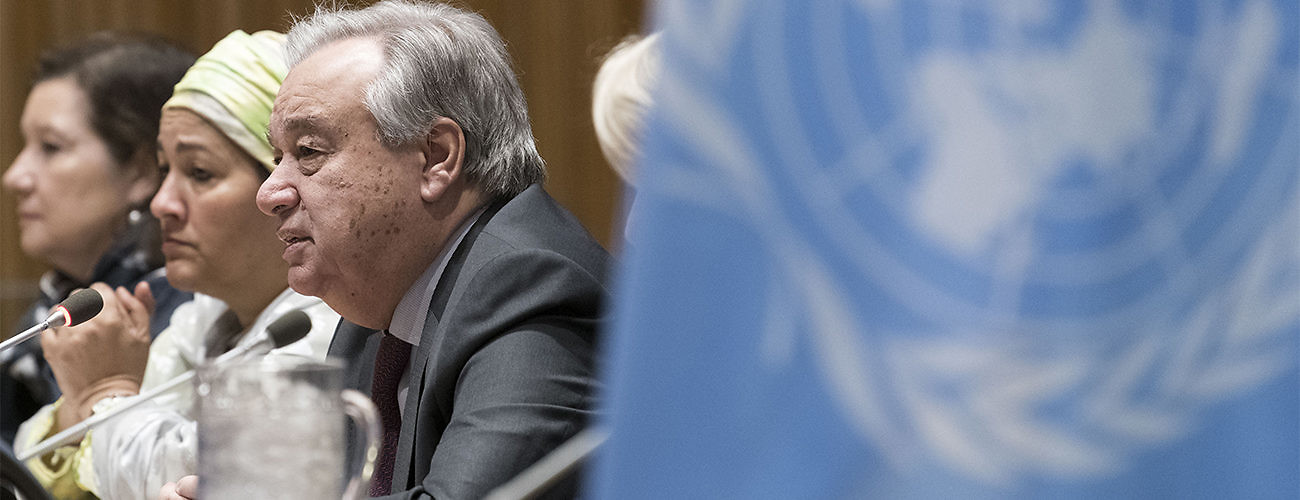Secretary-General António Guterres holds a global town hall meeting with UN staff members in New York, January 17, 2019. UN Photo/Mark Garten.
In September 2017, UN Secretary-General António Guterres proposed a new management paradigm to enable the UN to confront global challenges and remain relevant in a fast-changing world. The new management paradigm would bring decision making closer to the point of delivery, empower managers, increase accountability and transparency, reduce duplicative structures and overlapping mandates, increase support for the field, and reform the planning and budgeting processes.
Eighteen months after the management reform came into effect, this paper examines the implementation of the reform and its impact on peace operations from the perspective of both UN headquarters and the field. The paper highlights the current state of the reform, identifies good practices, flags areas for possible improvement or attention, and offers forward-looking recommendations for UN headquarters, mission leaders and managers in the field, global or regional support offices, member states, and staff at large.
While the reform is still a work in progress, it has continued to gain momentum, and implementation has become more systematic. Nonetheless, the paper concludes that greater effort must be made to get input from personnel in peace operations to ensure that the reform responds to their needs and constraints. More work is also needed to fully realize the potential of the management reform and ensure that it aligns with parallel reforms underway in the UN peace and security architecture and development system.








